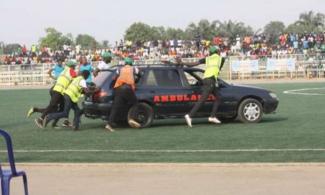
Plying their trade in one of the most chaotic football leagues in the world, professional players in Nigeria’s topflight soccer division risk death and career-ending injuries each time they file into the pitch due to the lack of basic medical items at match venues, writes Eric Dumo.
Enduring perhaps the most difficult eight months of their lives so far, the journey to full recovery and healing from the debilitating scars left behind by the tragic event of March 8, 2020 is still a long way ahead for the Martins family. That day, under the sweltering and skin-peeling Savannah heat of Lafia, capital city of Nasarawa, one of Nigeria’s tiniest states – by size and Gross Domestic Product – fate dealt them a terrible blow.
Their 23-year-old son, Chineme, one of Nigerian Premier Football League’s most talented players, collapsed and died while playing for Nasarawa United in a match against Katsina United. The defender fell to the ground with no other player near him at the time. The minutes that soon followed not only exposed the many laxities and rot in Nigeria’s local football league but also opened the door to a wound his family may never fully recover from. Despite being one of the youngest in his family, it is the finances Chineme manages to bring home while 'cracking' knuckles and 'breaking' bones in the country’s local league that the household relies heavily upon for survival. His death has left an uncertain future before them.
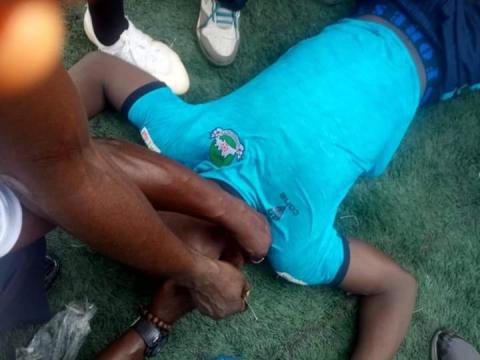
“He could have still been alive with us today if he had promptly been rushed to a hospital for medical attention immediately he collapsed,” a family member of the late defender, who asked not to be named, said. “There was no strategic effort to save his life after he collapsed. All that was done further helped in killing him faster,” he added.
A sea of officials and players clamped round Chineme immediately he collapsed to the ground that sunny afternoon. While at least one person forcefully inserted his hand into the player’s mouth in a bid to prevent convulsion, others pressed his chest and tried to revive him through queer means. There was no defibrillator – a device used to revive the heart – anywhere near sight in the entire Lafia Township Stadium where the tragedy took place. The final straw came minutes later when a rickety car serving as ambulance was pushed into the field after failing to start. While the ‘emergency health workers’ continued their ‘experiment’ on the player’s body, Chineme inhaled his last puff of air right there on the pitch. His death – a sad reminder of the circus the Nigerian local football league has become over recent years.
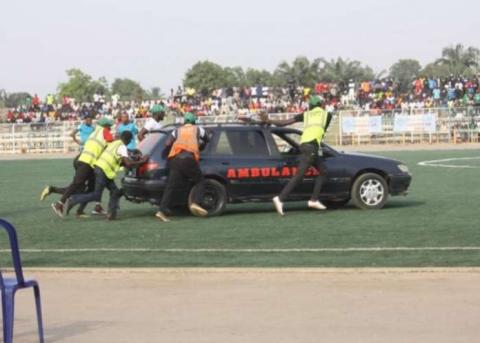
As a result of poor management, corruption and disregard for laid down rules by club administrators in the league, players and coaches have become ‘clowns’, who travel from city to city to entertain an ever hostile crowd oftentimes at the detriment of their own lives. Many have sustained career-ending injuries, died on the pitch or on their ways to match venues through car accidents owing to the poor state and lack of prompt medical care.
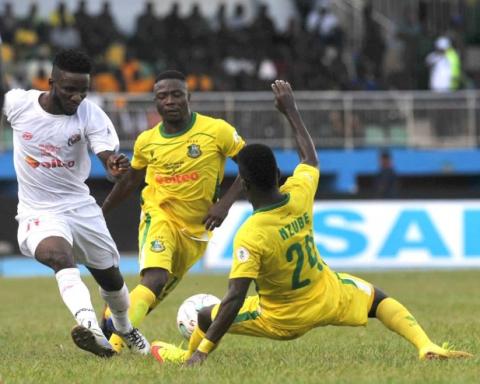
Eight months after the tragic incident of March 8, family members of late Chineme, who accused Nasarawa United management of negligence resulting in his death, are yet to get a robust compensation package from the club. Apart from N4m ($10,519) given to them to support his burial, they have been abandoned to their fate by the club.
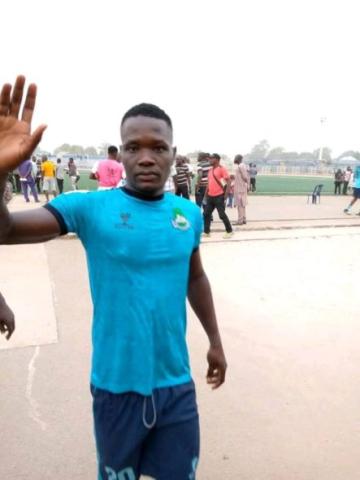
“So far, Nasarawa United FC has failed to provide the family with appropriate insurance papers and his employment contract.
"As well as failing to make available the official documents, neither Nasarawa United nor NFF have offered support to Martins' family,” the International Federation of Professional Footballers, contacted by the late defender's family over the issue, said in October.
While confirming that the player’s contract had no insurance inserted in it, Chairman of Nasarawa United, Isaac Danladi, revealed that the club had no other financial package to give Chineme’s family after the N4m they offered them.
“The family asked questions about insurance and we don't have any records.
“There is no fixed amount for compensation but because we value the player, we gave them N4m which we think is okay.
“Giving N4m is not part of the rulebook, but we did that. His death should not be used as an opportunity to squeeze the club,” he said.
A panel set up by the Nigeria Football Federation in the wake of the incident to investigate the cause of the player’s death revealed that Nasarawa United had no club doctor, physiotherapist nor crowd doctor at the time of the tragic event. Head of the medical team of the club was identified as a retired community health assistant, who lacked basic qualification or experience in sports medicine.
“The NFF/LMC have put in place the required guidelines and regulations concerning medicals for all clubs participating in the league but the main problem is non-compliance by the participating clubs. This was clearly evident in the case of Nasarawa United FC.
“The failure of the host FA to perform its statutory functions in the provision of adequate medical services and security during the match was largely responsible for the poor management of the medical emergency," the report said.
Sad as it is, the death of Chineme and events surrounding it is only a minute fraction of the danger practitioners in Nigeria’s topflight division now have to deal with these days each time they file into the pitch for either training or a competitive match. Apart from the fact that many clubs lack functional medical facilities like a clinic, ambulance and in some cases first aid kits, players are not also properly examined to ascertain their level of medical fitness before any game, this investigation discovered. This is on top of the fact that many of these clubs do not include medical insurance in the contract offered to players and coaches, thereby further exposing them to all manner of dangers both on and off the pitch.
“All the contracts I have signed with different clubs in the league, none came with medical insurance,” Hillary Ikenna, a 29-year-old defensive midfielder, who recently ran out his contract with Sunshine Stars of Akure, said. “A few times when a doctor is available, the club can send them to check the players, but most times it is the players who use their personal funds to seek medical treatment at hospitals as a lot of teams don’t even have a sick bay.
“Many clubs are owing salaries. At the moment, I am being owed five months salaries because the club has insisted that they won’t pay for the period of the Coronavirus lockdown. This situation has further contributed to the hardship and danger players in the local face.
“Also, players are not usually checked by a doctor to ensure they are medically fit for a game before they file into the pitch. I have survived every match only through God’s protection as we are largely on our own in case of injury or serious health issues,” he added.
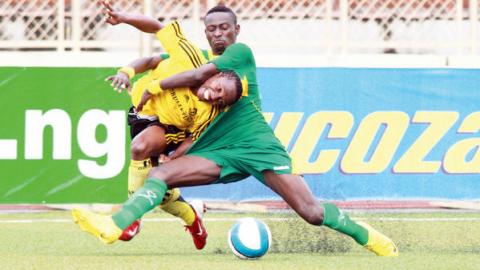
Like Ikenna, Dayo Ojo of Enyimba Football Club of Aba, one of Nigeria’s most successful teams, said the lack of basic medical items and related facilities at match venues had heightened the danger many of them now faced while playing for the clubs during league matches. According to him, participating in each game was akin to starring death in the face.
“The Nigeria league has a long way to go in terms of organisation and protecting the health of players. This really slows down performance of players because we face a lot of risks while playing for our clubs. We play with a lot of fear knowing fully well that if any injury occurs, we are abandoned by the team.
“The clubs don’t offer you medical insurance, it is either you get this on your own or endanger your career and life while playing in the local league. I know a lot of players whose careers have ended because their clubs offered no medical assistance when they sustained injuries. This is one area the League Management Company must work on before the new league season kicks off,” Ojo said.
This horrible playing condition has left a handful of casualties over the years in the local league. For instance, in May this year, Umar Ahmad Jalingo, 27-year-old goalkeeper of Bendel Insurance, died in Gombe after a brief illness. The player had to seek private treatment after the club failed to offer quality medical help. He left behind a wife and four children, who are yet to receive any concrete compensation from the club.
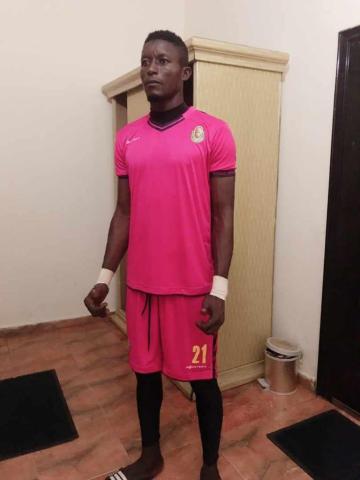
Before then in May 2009, Orobosa Adun, a goalkeeper with Warri Wolves, died on the pitch in a match he should not have played after a physical attack on him by fans of Ranger International of Enugu in a previous league game. Unqualified medical personnel passed him fit for the next match where he eventually collapsed and died.
Amir Angwe, Charity Ikhidero, John Ikoroma and Emma Ogoli are among a handful of other players, who have died on the pitch while representing various clubs in Nigeria's local football league.
In February 2009, a player with Zamfara United at the time, Abdullahi Sabiu, and the team’s curator, Ado Umar, lost their lives when the bus they were travelling in to a match venue had a terrible accident. Peter Onehi was one of the survivors of that tragedy even though he sustained a career-threatening injury. While still recuperating at a hospital, Onehi and 21 others were placed on the transfer market by management of the club. None of those involved in that accident including family members of the dead got adequate compensation from the club.
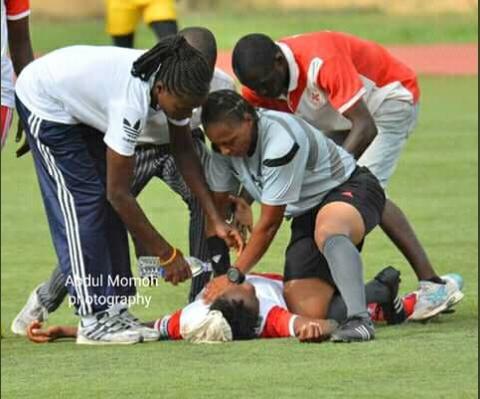
Decrying the situation, a medical practitioner with vast experience in sports medicine, Dr Adebukola Bajuwoye, said avoidable deaths will continue to be recorded in Nigeria's local football league except the right things were done and put in place. He disclosed that many clubs in the local league lacked quality medical facilities because welfare of players and coaches was not prioritised.
“Most clubs in Nigeria are battling with issues of poor funding and cannot afford to pay doctors well to watch over their players.
“Providing modern health facilities to take care of footballers is another issue.
“In advanced climes like England, clubs hire the best doctors to take care of their players with quality facilities. Ambulances are always ready to take the footballer to the hospital in emergency situations.
“It is important for clubs to do normal routine checks on their players every season, monitor their health status before and after every game.
“This must be done by a qualified professional doctor. Health of players is very important,” he said.
Team Manager of Rangers International of Enugu, Amobi Ezeaku, a sports lawyer, said corruption and insincerity was part of factors fuelling needless deaths among footballers in the league.
“Sometimes, clubs will say they have one doctor, which turns out to be blatant falsehood. Some others would say they would rely on the state Football Association’s doctor. It springs up as a great surprise because the team doctor should be personal to the team.
“The only time NPFL clubs carry out thorough medical checks is before the beginning of the season because such is a club licensing requirement. But after registration and licensing we go to sleep," he said.
In his own submission, a former national team player, Mike Onyemachara, argues that players dying at match venues could be curbed if medical personnel attached to clubs are exposed to the right training.
“I remember my First Bank and ACB days when we had pure professionals managing the clubs. We had adequate facilities, which was supported by an arrangement with a quality hospital.
“We did not resort to quacks and chemists to treat any ailment, no matter how minor. But these days, some players are moving pharmacies," he said.
Shuaibu Garagombe, a renowned sports administrator in Nigeria, said the difficult playing conditions of footballers in the local league and the attendant danger it exposes them to won't be addressed properly until insurance packages including medical security are inserted into contracts offered by clubs in the topflight division.
“Many clubs fail to pay their players’ salaries and bonuses on time. Club players have had to resort to protests and placard-carrying to have their entitlements paid.
“Insurance is a major part of sports and all athletes are entitled to it. They need to be provided with adequate medical care especially at the club and national levels.
“I have an endless list of players who have been affected by the lack of insurance by football clubs in the country,” he said.
Insurance expert, Ezekiel Chiejina, said the place of insurance in professional football cannot be overemphasised.
“Insurance is one thing that is not taken seriously in Nigeria. Sportsmen and sportswomen, who have a short career lifespan and are more at risk of injuries, need insurance and a good medical care plan.
“Athletes need personal insurance as well as accident, health and sickness insurance. These will protect them against serious diseases that can terminate their lives and career-threatening injuries. They also need life assurance against sudden death.
“Clubs can get group insurance for their players over the period of a particular competition or season. This allows them to give their best without fear.”
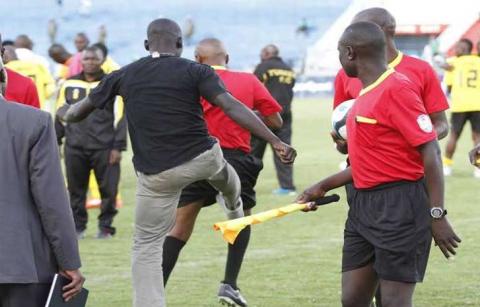
Curiously, the danger pervading match venues in Nigeria’s local league is not limited to players alone, coaches, referees and even journalists have had their own fair share of this terrible scourge while carrying out their duties at various points. They all continue to face death each time they head to match venues to carry out their assignments.
“This is not the way I was born or walked a few years ago,” one-time Enyimba Football Club of Aba, Kadiri Ikhana, said in reference to his limping.
One of his legs was badly damaged after hooligans at a match venue in Kaduna attacked him nine years ago. He spent a lot of his personal funds to be able to get back on his feet.
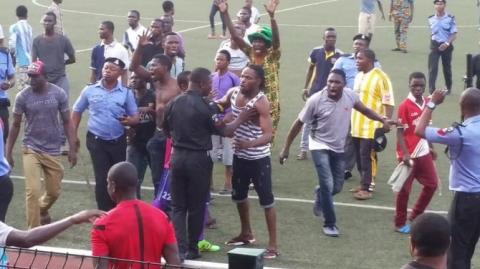
Segun Oguns, a former national team player and a coach in the local league, revealed that he had witnessed several dangerous situations at match venues, managing to escape death by thin air. According to him, there are places players and officials of a visiting team including referees are not sure of coming out alive due to lack of medical facilities and crowd trouble.
“There are some bad areas to go and play football in this country because the referees and away teams are always molested,” he said. “I have had a lot of experiences; I was stabbed in a match against Rangers at Gabros Stadium. On a number of occasions, we have had situations where fans would bring out cutlasses and attack coaches and players.
“At a time in Kaduna, we were attacked and the referee was beaten to death on the orders of the Commissioner of Sports there.
“There was an incident in Kano where supporters of the home team were using cutlasses to attack visiting fans. We had to lose that game after the Chairman of Sunshine Stars whom I was coaching then told me that it was the only way we could get out of the venue alive. We had to design the game to lose or else we would not have gone out of the venue alive,” he said.
A referee, Auwalu Barau, saw his career go up in flames when unruly fans attacked him in 2008 during a tense match between Enyimba and Heartland Football Club. He was hit with stones, metal bars and sharp objects and never fully recovered from the wounds and psychological damage until he died in December 2011.
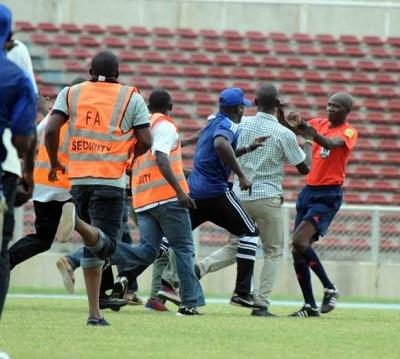
Rated by the International Federation of Football History and Statistics as the best in Africa and 24th in the world – one spot above the Scottish Premier League – in 2012, Nigeria’s topflight soccer division has gone from bad to worse in recent times, forcing sponsors like Globacom, a telecommunications firm, to take their money elsewhere.
According to Babatunde Omilana, an expert in sports marketing, until the health and safety of players, coaches and referees in Nigeria’s local league was made a priority through investment in modern medical facilities and equipment by clubs, the topflight division will continue to be a ‘circus’ of deaths. He urged club administrators in the country to take a cue from other leagues in Africa like the South African Premier Soccer League, Egypt, Tunisia and even Ghana where medical and life insurance was part of players’ contracts.
“Until we put these things in place, we may not make much progress like we want to see. It all boils down to the sincerity of the club administrators and league managers to see the right things being down. Otherwise, I am afraid that league venues will continue to mean death grounds for players, coaches, referees and others in the system,” he said.